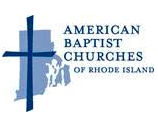The story of this church begins with Roger Williams, one of the thousands of Puritans who departed from England in the 1630’s to escape religious and political repression at the hands of the King and the Church of England. Many Puritans sailed to America to establish the colony of Massachusetts Bay. Williams, a graduate of Cambridge and an ordained minister, had been privy in 1629 to the planning of the exodus. However, he was not among the first wave of Puritans who arrived in the summer of 1630 to establish the new colony. Instead, he came in February 1631 and immediately revealed his idea of the colony differed from the views of most others. They wanted a purified Church of England; Williams wanted to separate entirely from the Anglican Church.
When offered an appointment to be the minister of the Boston church, Williams refused unless it completely cut its ties to the Church of England. Then he went to Salem where the local church members thought to offer him a position as assistant minister. However, the Boston authorities warned them about Williams’ ideas, and he traveled on to Plymouth colony. The Old Colony, founded by the Pilgrims in 1620, had a church that was separated from the Church of England. Consequently, Williams lived in Plymouth for nearly two years and earned his living by farming and trading with the Native Americans in Plymouth and the Narragansett Bay area.
In late 1633 Williams returned to Salem and became the assistant to the elderly minster of the church. When the old man died, the church called Williams to be its new pastor. He began to preach his concept of “soul liberty” which rejected the idea that the civil authorities could intervene in matters of religion and conscience. He demanded complete separation of church and state as he declared that “forced worship stinks in the nostrils of God.” He argued that the church and state were founded on completely different principles: the church was based on the love of God while the state was based on the sword. He wrote, “The civil sword may make a nation of hypocrites and anti-Christians, but not one Christian.” In addition, Williams declared that it was a “solemn public lie” to say that the King of England had the right to grant land to the settlers that had not first been purchased from the native peoples. His ideas threatened the religious, political, and economic bases of the colony.





